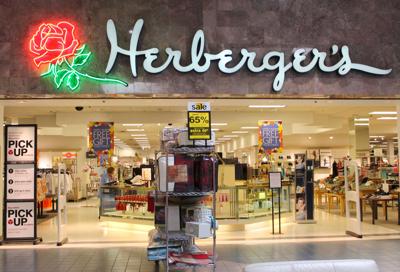OTTUMWA — Even in a bankruptcy with three-quarters of a billion dollars changing hands, there is some protection for local employees. There is also plenty of uncertainty — for almost everyone involved.
“My understanding was the judge has approved the deal,” said Professor Patrick Bauer of the University of Iowa College of Law. “I would assume this purchase agreement is 100 pages long.”
That means former parent company Bon-Ton Stores no longer owns any Bon-Ton stores, nor any of their Younkers or, of interest locally, any of their Herberger’s. Those properties are all owned now by a partnership of liquidation companies.
That’s where the uncertainty is: The professor agreed the liquidators who now own all of those stores may not have decided what they should do with each of them. According to the Associated Press, “court filings show that all the Younkers and Herberger's stores in Nebraska and Iowa will be closed as part of their corporate owner's sale to liquidators.”
Some decisions have been reached based on federal regulations or prior agreement. For example, customers are told to continue paying what they owe on their Herberger’s credit card. But they can't use that particular credit card to make purchases. A sign in the store Thursday said other major credit cards are still accepted, but bonuses from the old card are not.
But the federal bankruptcy judge overseeing the case has ordered that they accept customer gift cards for a 10-day period. Is that meant to keep consumers from being hurt?
“That’s part of it, but remember, that’s a lot less [time] than usual,” said Bauer, who teaches bankruptcy law. “And they’re probably not going to be able to special order anything.”
In fact, he said, while the store may continue to sell, they most likely will no longer buy any inventory.
“Also, the judge ordered they will no longer be required to accept returns,” Bauer said.
But the 10 days for gift cards at least indicates some people will remain employed for now. The store was fairly busy Thursday; associates were working. An employee in the store’s office said there wasn’t much they were permitted to tell the press, though they felt comfortable saying the Ottumwa store should remain open at least another couple of weeks.
And, the law professor believes, those employees will get paid.
“In a bankruptcy, there’s something called ‘priority’ which are those things that need to be paid first and most,” said Bauer. “Everyone who has been working for Bon-Ton, they are a ‘priority.’ And for as long as they work there, and from the bankruptcy forward, they will be at the front of the line at that [pay] window.”
But vendors who sold items to the store may not see all of the money they’re owed. That’s because vendors to large corporations don’t drop off a box of product and stand by the cash register, waiting to get paid. They may get paid 60 days later — after the store has sold the items. As for the bankruptcy? They can get in line — behind the employees.
“Vendors may get paid just pennies on the dollar,” Bauer said.
The new owners may have a sale “in place”, getting rid of the merchandise in every store until there’s nothing left but the racks. Then they’ll sell the racks, he said.
Rather than doing a liquidation sale in place, they could collect inventory from a dozen stores, close them and truck the inventory to a central location for a large sale. It’s possible, of course, that they’d just order everything closed.
But it’s not unheard of for an individual store, or a small chain, to remain open after the parent company dissolves. Recently, some mall owners got together and bought a bankrupt chain of retailers. But it’s fairly rare, Bauer said.
“Consider the challenges they face — look at just the economy of scale,” he said.
The Ottumwa store might sell 20 sweaters in a week. But when it comes to making a deal with the vendor, it used to be Bon-Ton that’s ordering. They might order 5,000 blue sweaters at an excellent price.
Someone with their own store, ordering 20 sweaters, doesn’t have that kind of buying power, and it puts them at a disadvantage.
As for now, the Ottumwa store was busy and people are shopping. The selection is good now. In a week, they may offer a discount, but the selection in size and model won’t be as good. The liquidators are looking to make money.
“Depending on how low a price they paid, they can sell remaining inventory very cheap, and still make a profit,” the professor said.
There are assets liquidators are thinking of that may not occur to the average person. The name of a place can be valuable. Money customers owe on a Herberger’s charge card — accounts receivable —can be bought; customers would still owe that money on their credit card. A long term lease, that is, the rental agreement with a mall, can actually be sold.
“With Radio Shack, the leases were in some cases the most valuable asset they had.”
Staff writer Mark Newman can be contacted at MNewman@ottumwacourier.com.
























